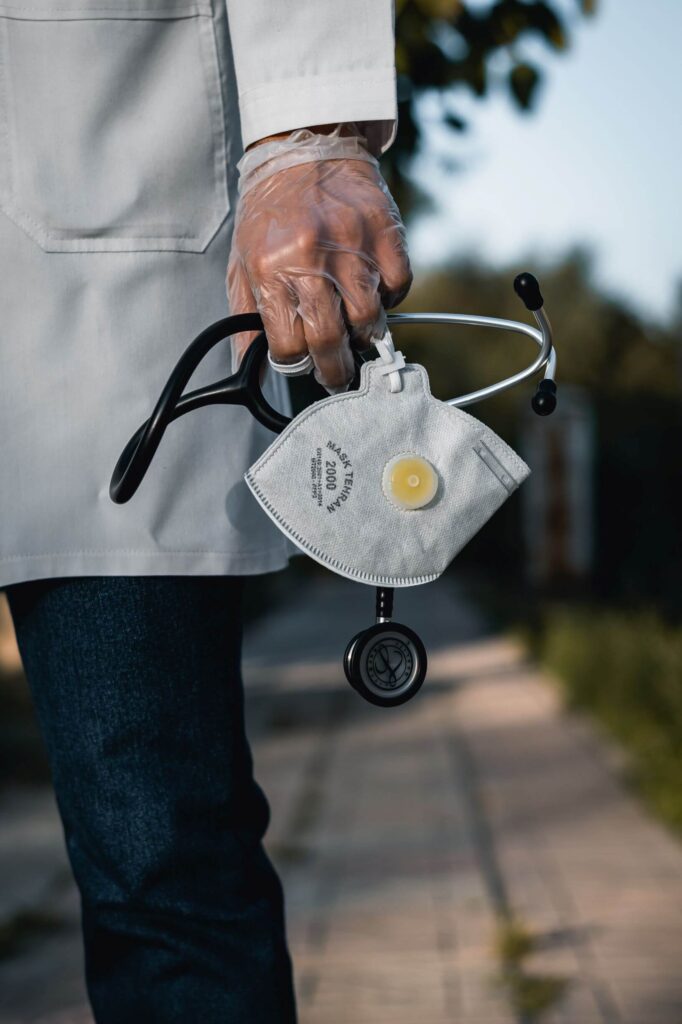The COVID-19 pandemic has been stressful for everyone. Essential workers, including physicians and other healthcare workers, face an additional level of stress. Prioritizing mental health treatment during a pandemic is essential for your continued health and well-being as a professional.
Mental Illness Awareness Week
October 4-10 has been designated as Mental Illness Awareness Week. In 1990, Congress officially established the first full week of October as a time to focus on mental illness, its treatment, and overcoming its stigma. Advocates, such as the National Alliance on Mental Illness (NAMI), work together to sponsor activities and to educate the public about mental illness. This year’s theme is “What People with Mental Illness Want You to Know.”
A Physician Speaks About Mental Health
Leigh Vinocur, MD, an emergency physician practicing in Baltimore and a member of the American College of Emergency Physicians, wants others to know that physicians “should be able to seek appropriate mental healthcare without fear of reprisal.” Dr. Vinocur writes in Medpage Today that “physicians in all specialties are reluctant to reach out for mental health help, even in the best of times.”
Even during normal times, physicians face pressures with family and with work, “any of which could reasonably require a little help in the form of counseling or medication.” Vinocur emphasizes that “it’s even worse that we would feel forced to ignore or downplay these stressors during a pandemic.” Physicians should prioritize their own mental health, just as they encourage their patients to do.
Those Who Are Particularly Vulnerable
In addition to the stress and anxiety faced every day by professionals such as physicians, airline pilots, lawyers, and other essential workers, the coronavirus outbreak has made work situations as well as family life even more traumatic, increasing the need to seek help. In addition, prioritizing mental health treatment during a pandemic is especially important for people who are particularly vulnerable.
The Centers for Disease Control and Prevention (CDC) states that people with pre-existing mental health conditions or substance use disorders may be particularly vulnerable in an emergency, such as a pandemic. Mental health conditions (such as depression, anxiety, bipolar disorder, or schizophrenia) affect a person’s thinking, feeling, mood, or behavior in a way that influences their ability to relate to others and function each day. These conditions may be situational (short-term) or long-lasting (chronic).
Recognize When It’s Time to Get Help
Professionals are used to working under stressful conditions. However, when the situation pushes you to the point where it is overwhelming, you need to prioritize your own mental health. It is important to recognize what is a typical reaction and what is not.
When you feel you have been pushed beyond your ability to cope, it is time to pay attention to the symptoms you may be experiencing. For example, you may find yourself feeling helpless, sad, angry, irritable, hopeless, anxious, or afraid. You may have trouble concentrating on typical tasks, changes in appetite, body aches and pains, or difficulty sleeping, or you may struggle to face the routine responsibilities of your work.
You need to prioritize your mental health and seek treatment when these signs last for several days in a row, make you miserable, and cause problems in your daily life. When you find that it is difficult to navigate from one day to the next, from one chore to the next, it is time to seek help. Simply waiting and hoping that it will all just go away can lead to worsening symptoms.
Suicidal Thoughts
If you are struggling with mental health issues and feel suicidal or are thinking of hurting yourself, seek help immediately. Contact your primary care provider or a mental health professional, or call a suicide hotline. In the US, you can call the National Suicide Prevention Lifeline at 1-800-273-TALK (1-800-273-8255) or use its webchat at suicidepreventionlifeline.org/chat.
Overcoming the Stigma
One of the best ways to overcome the stigma associated with mental illness is to talk about it. When you are struggling during the pandemic, reach out and tell someone what you are experiencing. Whether you are a healthcare provider or other professional, when the pandemic becomes overwhelming for you, it is okay to be honest with yourself and with others about its effects on you.
Providence Supports Professional Essential Workers During COVID-19
At Providence Treatment, we know the challenges of mental illness, especially during such trying times. We also understand the stigma you may be concerned about as a professional. A recognized leader in the treatment of behavioral health disorders and substance use disorders, we want you to be able to prioritize your mental health during COVID-19. We use a telehealth technology that enables us to remain HIPAA-compliant and ensures your confidentiality is maintained. If you need help, contact us at 484.469.9592.









